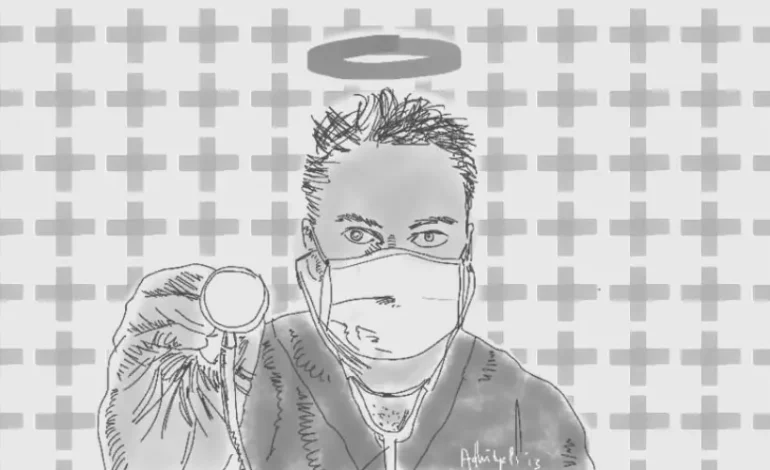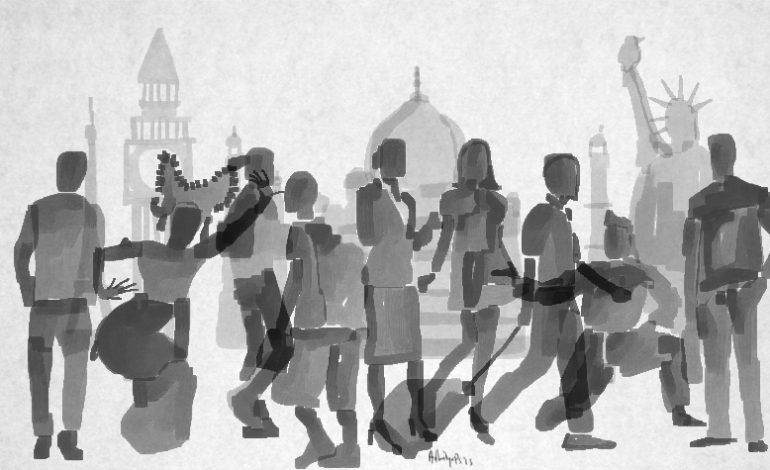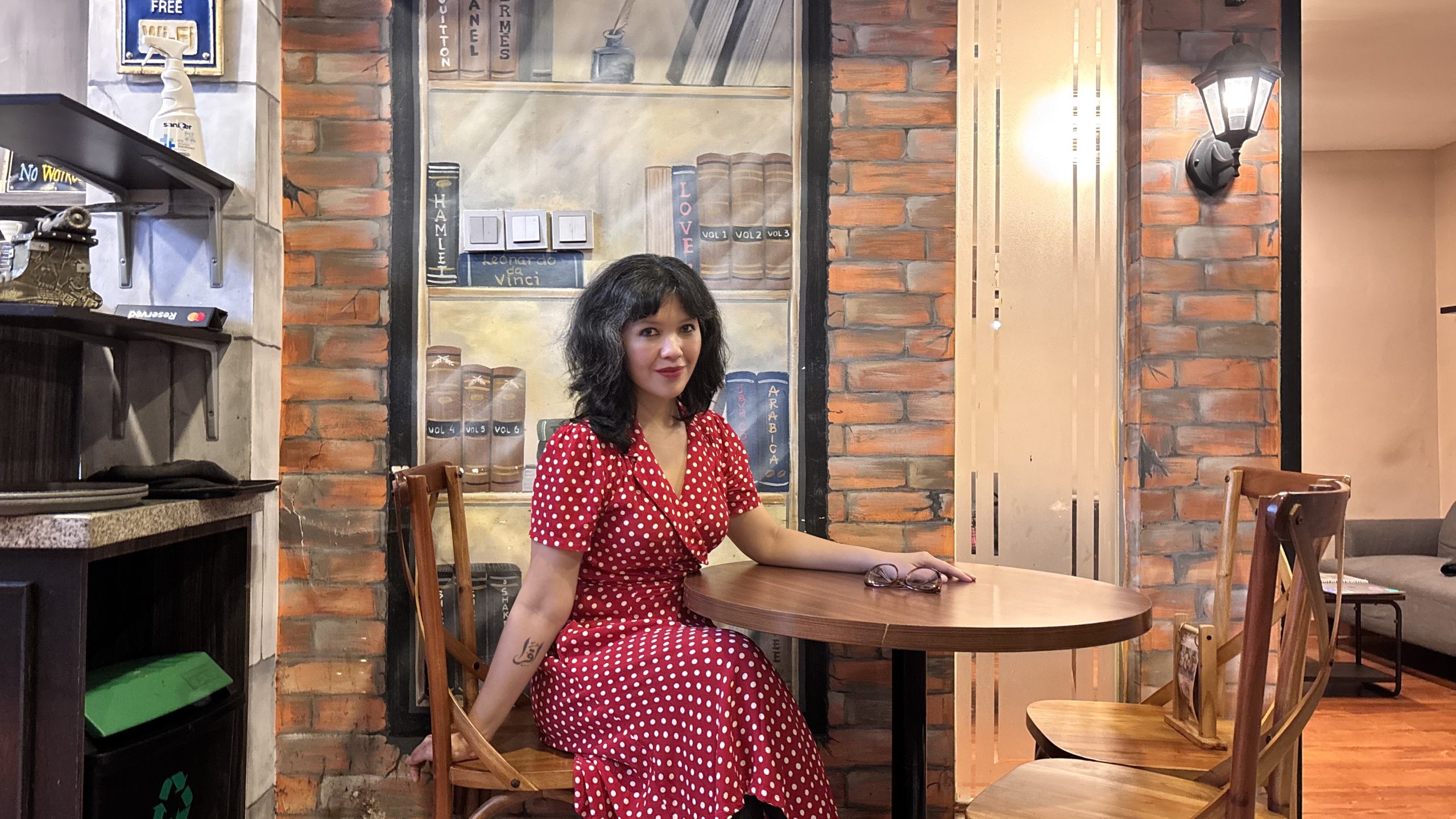The Accidental Nurse

Nineteenth century British adventurer James Holman was dismissed from his military post after an illness left him blind. But less than a year of being out of job, he embarked on a solo journey to Africa (and continued to travel extensively, earning him the name the “Blind Traveler”).
“It entered my heart and I could have wept,” he wrote about the continent in his legendary book, A Voyage Round the World.
I likened myself to Holman when I decided to change profession.
“A nurse?” asked my mother in disbelief at the other end of the line, half a world away.
She nearly fainted upon hearing the news, and I didn’t blame her. Her youngest boy had never wished to become a nurse. Doctor, maybe. In fact, I might still have more of a chance being an ambulance driver, but a nurse?
“Why not being a midwife?” my mother asked sarcastically.
It’s not that I have many choices work-wise, being a third-world resident in a rich country like Switzerland. The country doesn’t recognize my Indonesian university degree and language is the main obstacle. After I moved to Lucerne in 2004, following my Swiss wife who works as a civil servant here, I had done a series of menial jobs that included washing dishes in a hotel and working part time at McDonald’s, while still writing for Indonesian media.
Four years ago, the opportunity to become a nurse came. I quickly filled out the application, and passed the tests and interview. After a year of training, plus a three-week internship, I was officially a nurse. Clad in white uniform, I earned US$4,000 a month, which is fantastic for Indonesian standard but a mere pocket money for the Swiss.
During the first year, I was assigned to the dementia department in a nursing home in central Switzerland. My tasks were feeding, bathing and attending to senior citizens. They could be endearing at times, thinking that the flower pot was their toilet, but other times, they could really test my patience. When they didn’t like the menu, they chewed it for a few seconds, before spitting the food at my face.
“So, how is it?” my mother asked, every time we spoke on the phone.

“Still here,” I said.
On the second year, I was posted in ‘normal’ senior citizens department. They are mostly senile, but are not suffering from dementia. Some are adorable, others are cheeky, but they often move me to tears.
On one particular morning, a note on the table told the sad news of someone’s passing. Even worse: there would be no funeral. I had known about it for a while from the times I spent playing cards with him.
“I’m going to donate my body to the hospital,” he said.
“What if no hospital wanted it?” I joked.
We exchanged stories. In Bali, I said, people have to be cremated when they die.
“If nobody wants your body, let’s just burn it….with mosquito repellent,” I said. We laughed and laughed until we cried.
On another morning, I had to wake a lady up. I shook her softly and whispered good morning in her ear. Once, twice, three and four times. There was no sign that she was going to open her eyes. I watched her carefully, but her chest was still moving in rhythm, albeit slowly. At least, she was still alive. I shook her again but to no avail.
“Even Harry Potter can’t wake you up, madam,” I told myself.
I called my colleague in the next room.
“Just wake her up,” she said, which I translated as an order to use some force.
I touched the lady’s face with my cold hands, and spoke to her ear. Her eyes finally fluttered open, and I gave her my most charming Asian smile. It was only several seconds before she closed her eyes again.
“Wherefore art thou, Harry Potter,” I hissed.
On the dining table, I crushed a few pills, mixed them with yoghurt and slowly bring the spoon to another patient’s mouth. It was easy. He gazed into space, but everytime a spoon touched his mouth, it would open. And it would open for any approaching object, it seemed. One time, a piece of paper got close to his face, and his mouth automatically opened.
One night, another patient was wheezing, and at times was out of breath.
“He wouldn’t make it,” I said, putting his hands on the bed.
But every time I put a respiratory hose into his nose, within minutes he would yank it and throw it on the floor.
“You don’t want respiratory assistance?” I asked him.
He did not reply, moaning only before shaking his head slowly. I decided to get rid of the machine.
I observed his chest, and felt relieved when there were still movements. When there wasn’t, I finally let go. I left the room and closed the door. At the office, I wrote a note to the night shifter about his last condition and asked them to check the patient regularly.
I went home still feeling anxious. Would there be an obituary about him in the local paper the next day? There wasn’t, until a year later.
It has been three years since I first became a nurse and I have come to enjoy it. My mother has passed away, but if she were still here, perhaps I’d take her (sarcastic) suggestion and fill up the application to become a midwife. Everything is possible— like the Blind Traveler’s solo journey to Africa.
About Krisna Diantha
Krisna left Indonesia because of love, and because of love as well he has to voluntarily become a stay-at-home father. He writes amid the terrorizing cry of his two children. His other skills include tip-toeing between the computer and the stove or the clothesline.






















